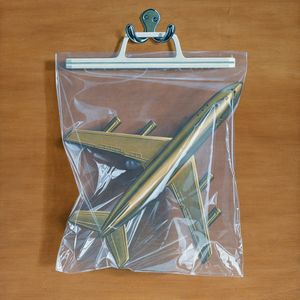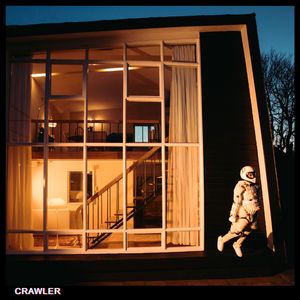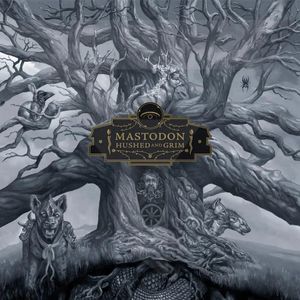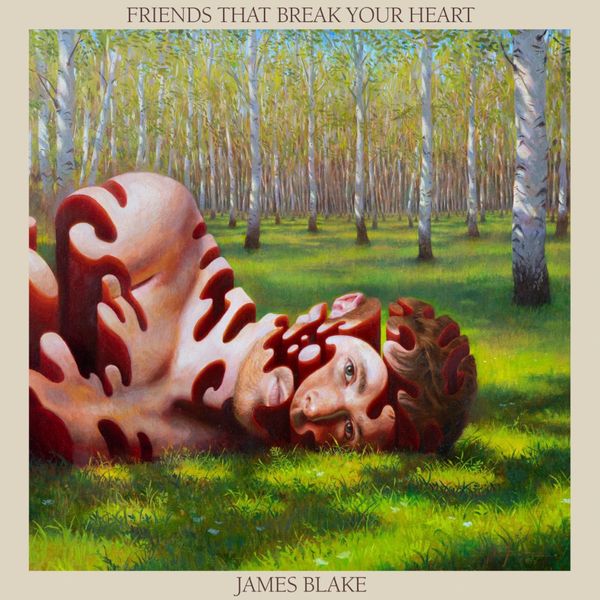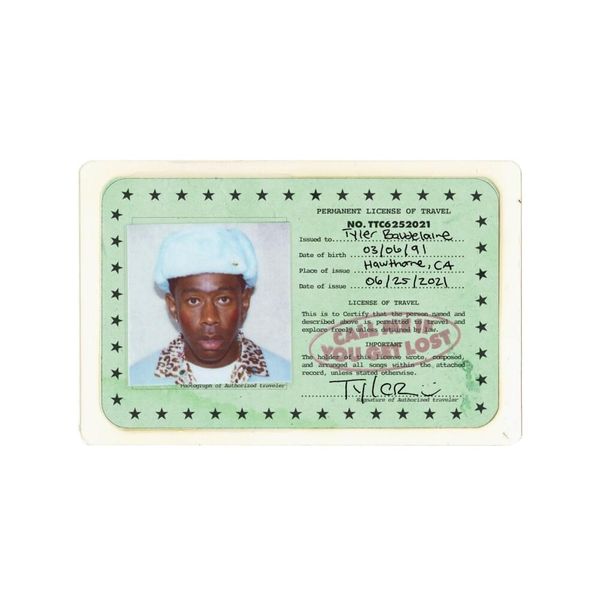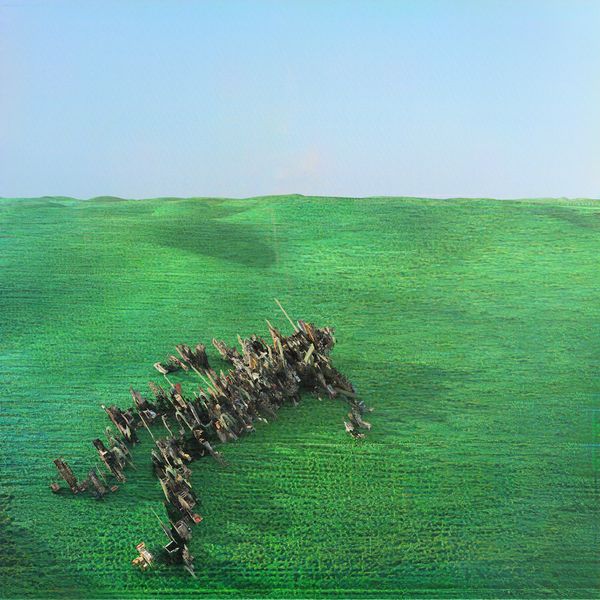Lianne La Havas
Lianne La Havas
André
There’s no denying Lianne La Havas’ talent. When we reviewed her last studio album, Blood, in 2015, there was agreement across the board that the songwriting and arrangements weren’t always up to the same standard as her stunning vocal performances. If the instrumentals were as dynamic as La Havas’ exquisite voice, I imagine it would have had more of a lasting impact.
In this regard, Lianne La Havas has faintly improved on its predecessor. Arrangements are richer, and the production is far less sterile. There’s a hazy, grey quality to the album that is very endearing; a stark contrast to her previous releases. This is a more patient listen, and it feels more purposeful as a result, if only slightly. La Havas sounds more soulful than ever before. I wouldn’t say that she’s fully found her sound yet, but this is as close as she’s gotten. It’s a shame, then, that the record lacks hooks and memorable moments. Lianne La Havas is her most cohesive album to date, but perhaps her most forgettable. It feels like one step forward, and two steps backwards.
The record opens with arguably it’s strongest moment. “Bittersweet” flaunts one of the most intricate and satisfying arrangements in Lianna La Havas’ discography. Add to this a captivating vocal performance, delivering honest details on a diminishing relationship, and you’re on to a real winner. Whether it’s a good enough song to include twice on the same album… is another matter entirely.
As a contrast, “Paper Thin” is jazzy and understated, with delicate drums driving one of La Havas’ most gentle and gorgeous vocal works on record. Even better is the triumphant cover of Radiohead’s “Weird Fishes”, which sits right in the middle of the tracklist. It’s a fan-favourite in the Radiohead community, and it’s safe to say that La Havas does it justice. The final section is particularly wonderful, and makes for the most euphoric moment on the entire album.
However, the fact that one of the strongest and most distinctive arrangements is almost directly borrowed speaks volumes. “Weird Fishes” is both a standout moment and a key insight into Lianne La Havas’ limitations. Some of the songs just aren’t nearly as strong as others. Speaking as a fan, I’ve always found myself cherry-picking her best songs, rather than listening to full albums. Although Lianne La Havas takes some serious strides, I don’t see my listening habits changing quite yet.
Favourite tracks //
- Bittersweet
- Weird Fishes
- Paper Thin
Fred
Lianne La Havas is back and she sounds as lovely as you expect, but her third album is not so much a progression from Blood as it is a step sideways. The vocals are almost impossibly full and luscious, the songs meander, and the production, though markedly improved, is still too polished to feel real. The songs go down smooth, but I don’t expect they’ll have much staying power.
One of the standout tracks, “Paper Thin”, was supposedly inspired by the Japanese ethos of wabi-sabi — accepting imperfections, basically. It’s a nice sentiment, but I’m not sure how much Lianne La Havas really commits to it. Outside the grainy, almost demo-like “Paper Thin”, the album is hardly rough and ready. Then again, Lianne La Havas embracing her sonic imperfections is like Arnold Schwarzenegger being body positive. There aren’t an awful lot of blemishes to forgive themselves for.
Five years later it doesn’t seem like much has changed. La Havas has released luscious, soulful, not-terribly-memorable rhythm and blues, most people seem to love it, and we’re left thinking she’s capable of so much more. So it goes. Listen to Stewart Lee’s favourite albums from the ‘80s for some proper wabi-sabi music.
Favourite tracks //
- Paper Thin
- Weird Fishes
Andrew
Lianne La Havas’ self-titled return, five years after Blood, was a welcome announcement. Having enjoyed her previous material and her enthralling live performances, she joins the list of excellent artists making this year a touch more positive.
There’s a new sound here. Opening with intent, “Bittersweet” is a bold, lush groove that sits back and leaves centre stage open for La Havas’ vocals. Instrumentation nurtures a nod of the head, backing vocals complement proceedings perfectly, while the vocal line grows from silky smooth to soaring and powerful. The track certainly invites the listener in.
It’s a common theme. A strong vocal line that builds through “Paper Thin” accompanied by lovely delicate guitars with warming chord progressions in single, while “Green Papaya” goes for a more stripped back, soulful sound. Elsewhere, “Can’t Fight” has glimmers of previous material, with a bright, springy guitar hook. Lyrically, we’re invited into personal, intimate moments across relationships and love interests Lianne’s had and the warm, hugging nature of the album only supports that further.
At the turning point of the tracklist (and opening side B of the vinyl release), La Havas drops a potential front runner for best Radiohead cover. “Weird Fishes” is faithful to the original with a definitive Lianne La Havas identity worked into it. Pulling the drumbeat back in the opening moments is a nice touch and the timbre on the keys is smooth as butter. The vocal line is well rounded and a delight to listen to. The acapella breakdown is the cherry on top, with some brilliant harmonies followed by an explosive instrumental to match. Big, fat vocals re-enter, blasting over the top of proceedings. It’s a constantly evolving, engaging six minutes.
But that’s a double-edged sword. That “Weird Fishes” is one of the most memorable tracks on the record is a credit to La Havas but an issue for the rest of the original material on the album. It makes for a stark contrast in the development of many tracks, particularly those that follow it (save for “Please Don’t Make Me Cry” which makes for another album highlight). The album feels like a jam. Various videos shot during recording show a group of people thoroughly enjoying the music they’re making. That’s a pleasure to watch, but it doesn’t translate to an album of strong tracks.
I’m fully aware that this is a case of ‘be careful what you wish for.’ In reviewing Blood, we all made vague statements about the instrumentation not quite being there, sounding ‘sterile,’ not leaving ‘substantial impact’ and being ‘surplus to requirements.’ Here, La Havas has delivered a rich sound which grooves and vibes its way through the album and leaves the radio hits behind, but in doing so it feels like it misses some grounding or structure. Nevertheless, Lianne La Havas is worth a listen and makes for a strong entry in her growing catalogue.
Favourite tracks //
- Bittersweet
- Weird Fishes
- Please Don't Make Me Cry




